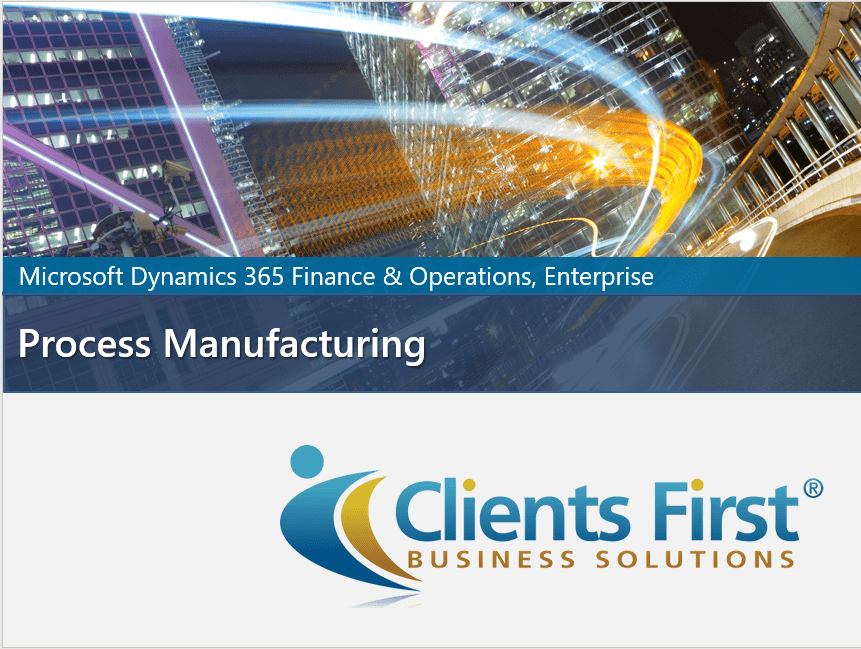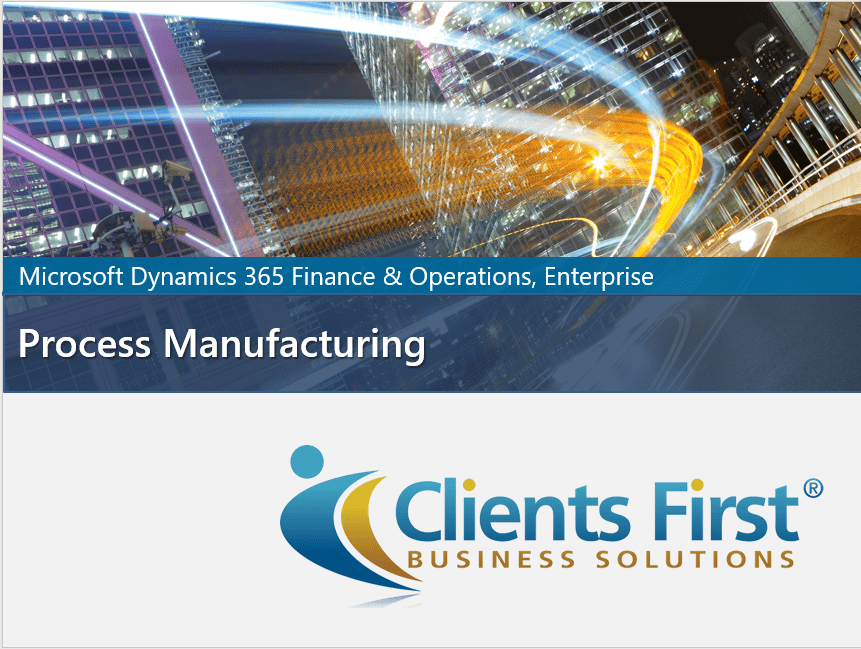Process industries like food and beverage, cosmetics and specialty chemicals have had product lifecycle management (PLM) solutions for many years. These solutions rarely receive the same level of attention as those meant for discrete industries.
Things have, however, started changing in recent years as leading ERP manufacturers like Microsoft, through its Dynamics AX/365 solution, focus on enabling organizations completely manage product definition, from concept to retirement.
Dynamics AX/365's capabilities enable faster, more efficient and high quality manufacture of formulated products. A formulated product refers to a structure of items including the label, artwork, container or package, and the formula and recipe for a product. The product can be made in a continuous manner or in batches.
The recipe refers to the ingredients, equipment needed for production, procedures of combining the ingredients, and instructions on how to configure the equipment (e.g. a required mixing time and temperature).
The bill of materials of the process industry is the formula while the manufacturing route and related instructions is the recipe.
Process manufacturing organizations need a Process Manufacturing ERP at all stages. There are basic and specialist requirements at each stage. Microsoft Dynamics AX/365 can be configured to manage process manufacturing requirements such as:
- Rapid order processing for many customers and their options
- Lot/Batch recall/traceability and management of FDA health and safety requirements
- Own and Private label products
- Business analytics and intelligence; from reporting to real-time events with alerting
- Inventory planning, management and visibility
- Product and process costing
Larger companies may require more sophisticated capabilities such as:
- Transport and/or logistic optimization
- Product serial number tracking
- Advanced warehouse task management and Disaster Recovery Planning (DRP) capability
- Automated production data collection
- Multiple units of measure capability such as catch-weight management for pricing/costing
- Lab systems linked to quality inspection
Benefits of Process Manufacturing ERP
Whether you are looking to replace your existing spreadsheets or are in the process of re-evaluating your existing ERP, it’s important to focus on a solution that has a strong process manufacturing foundation. The ERP should support your unique requirements with minimum customization.
Dynamics AX can help to streamline your process manufacturing through:
Production Planning
Production planning provides stability for the details capacity and material plans by ensuring access to timely information, minimizing downtime of production runs, and maximizing resource utilization. Dynamics AX can develop short-, medium- and long-term plans at the plant across multiple locations by answering key questions for planners such as what should be made, how much should be made and where it should be made.
Product Costing
Product costing enables organizations to determine standard or estimated cost rollups. Cost rollups can be determined for a single product or specification, group products or multiple specifications, or for all process specifications for a single or multiple plants.
Materials Planning
Material planning helps managers to develop production plans based on demand, current inventory levels and existing replenishment. Materials planning can determine the quantity and date when packaging supplies and ingredients will be needed after a workable production plan is produced. Planning jobs can also be created and confirmed for later transfer to manufacturing jobs.
Recipe and Formula Management
Organizations can use recipe and formula management to manage the resources required to produce a product in every stage of the manufacturing process. The formula or recipe is the basic building block for the entire manufacturing process. The two define all the resources and steps required to produce raw materials, intermediate products, and resource and labor requirements.
Other benefits of process manufacturing ERP include:
- Automating your chargeback validation process and helping to keep tabs of regulatory compliance requirements, manage fees and rebates, non-standard pricing and high data volumes.
- Protect your customers and brand with easy-to-use traceability solutions that can track ingredients and products from suppliers to manufacturing end-users.
- Make informed manufacturing decisions in real-time to improve delivery performance, contain costs, increase plant throughput and enhance quality.
- Streamline inventory management and get accurate data in real time to ensure low manufacturing costs, quicker inventory turns, faster time to market and higher quality product.
- Maximize efficiency and utilization of organization resources to meet market demand and extend the life of significant capital assets.
The above is an overview of recipes and formulations requirements in a process manufacturing ERP.
 Process Manufacturing ERP: Recipes and Formulations">
Process Manufacturing ERP: Recipes and Formulations">
